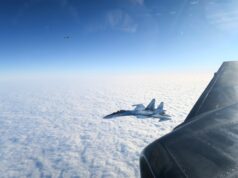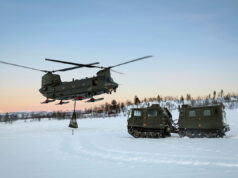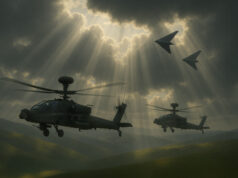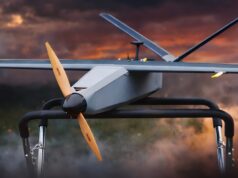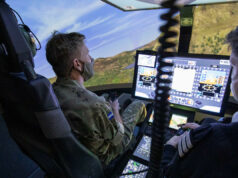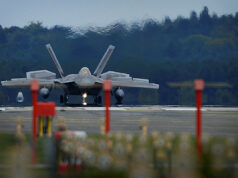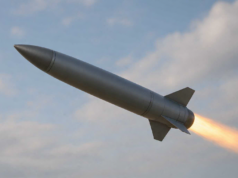British combat aircraft have provided extensive support to Iraqi forces in Mosul, striking nine Islamic State targets on Monday.
Three flights of Royal Air Force Tornado GR4 and Typhoon FGR4 aircraft operated over western Mosul on Monday the 15th of May. As well as conducting tactical reconnaissance, aircraft also provided support to Iraqi troops engaged in very close combat with Daesh extremists.
Three Brimstone missiles were used in very precise attacks on terrorist firing points, including a medium machine-gun position, while Paveway IV guided bombs struck another machine-gun team, demolished four Islamic State-held buildings and cratered a road to prevent terrorist movements along it.
The RAF is continuing to support Iraqi forces in their effort to liberate western Mosul. While the operating environment in the city is very challenging, particularly given the closely-packed buildings, very narrow streets, and the density of the urban population, the RAF say their aircrew ‘have continued to deliver precision strikes in close support of Iraqi troops on the ground.’
Islamic State’s current tactics, including the illegal use of civilians as human shields and fighting from sites such as schools, hospitals, religious sites and civilian neighbourhoods, increases the risk to innocent life. While no military operations come without risk, particularly in dense urban environments and against such tactics, the RAF reportedly ‘continues to take all steps necessary to minimise civilian casualties’.
What is the current status of the air campaign?
In December 2016, it was reported that the Royal Air Force is operating at its most intense for 25 years in a single theatre of operation which far outstripped the UK involvement in Iraq and Afghanistan – RAF jets have dropped 11 times more bombs (1,276 strikes) on Syria and Iraq in the preceding 12 months than they had in the busiest year of action in Afghanistan a decade previously.
The cost of the operations against Islamic State and other details of the campaign were revealed in a briefing paper. In March 2015 the MoD confirmed that the net additional costs of the military air operation would be met from the Treasury Special Reserve; while the costs of training and equipping the Iraqi and Kurdish security forces, and the provision of key enablers, would be met from the MOD’s Deployed Military Activity Pool (DMAP).
In answer to a parliamentary question in September 2016 the MoD set the costs of the operation, between August 2014 and the 31st of March 2016, at £265 million (£45 million in the 2014-15 financial year, and £220 million in the 2015-16 financial year).


